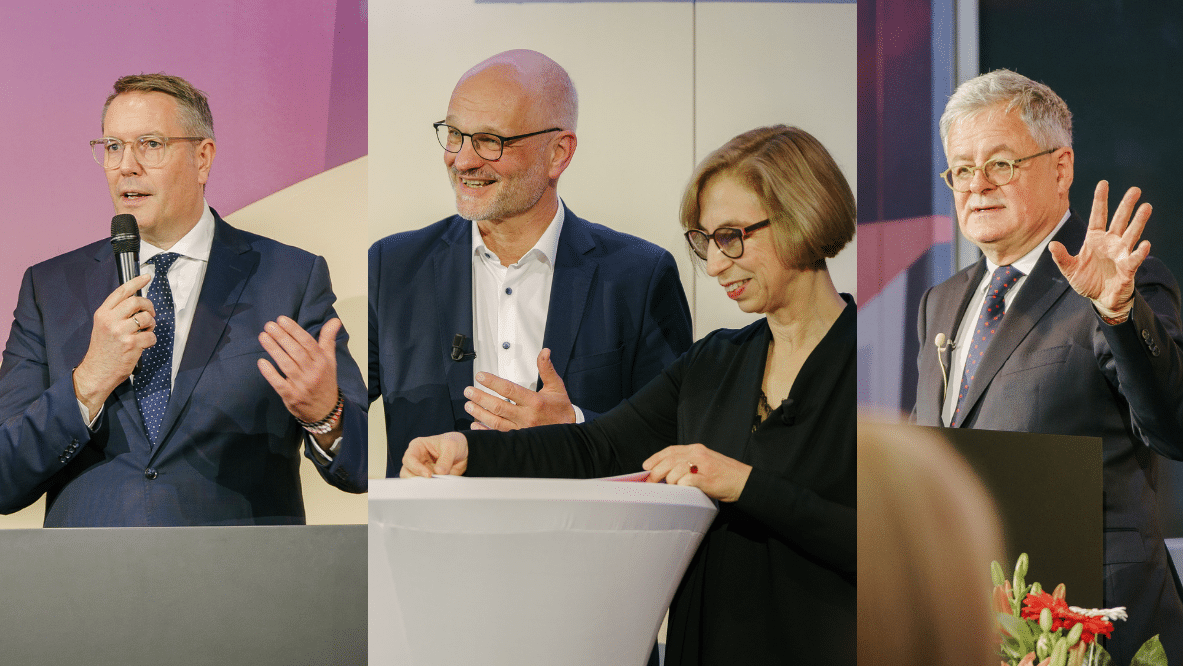The Leibniz Institute of European History (IEG) celebrated its 75th anniversary yesterday with a ceremonial event attended by more than 100 guests from academia, politics, and society. Highlights included a welcoming address by Rhineland-Palatinate’s Minister-President Alexander Schweitzer and a keynote lecture by the internationally renowned historian Sir Christopher Clark, Regius Professor of History at the University of Cambridge.
Feel free to read the report on our blog (link below).
As an extra-university research institution, the Leibniz Institute of European History (IEG) has been dedicated since 1950 to studying European history and its global interconnections since 1500 through its research and fellowship programs. With this distinctive focus, the institute is unique worldwide. Its research explores the political, social, religious, and cultural foundations of modern Europe.
In his address, Minister-President Alexander Schweitzer highlighted the IEG’s special importance for Rhineland-Palatinate and for international research.
The IEG’s two directors, Nicole Reinhardt and Johannes Paulmann, together with former staff member Katharina Stornig (University of Vienna), reflected on the institute’s evolution over the years—its developments, milestones, and future plans.
Sir Christopher Clark spoke on the topic “1848 in Retrospect – Resonances of a European Revolution.” He opened with a central thesis: “Looking at the calendar, history may appear to recede from us; in truth, we stand in a non-linear relationship to the past.” This idea was vividly illustrated through numerous examples.
Read our full report on our blog “Writing European History / Europäische Geschichte schreiben” (link below).
You can also find more details in the press release (see link).
To mark the institute’s 75th anniversary, a three-part interview withthe IEG directors has also been published on the IEG Blog (see link).
Photo rights: IEG, Photographer: Akira Schüttler
